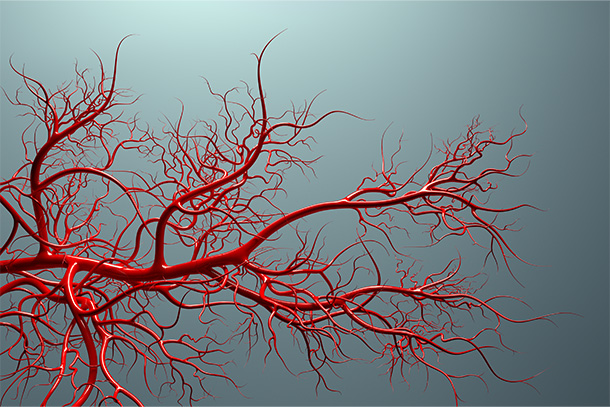
Penn State researchers were awarded a National Institutes of Health grant to advance vascularization — the growth and patterning of blood vessels — in tissue after injury. Credit: Storman/iStock
Collaborative grant to advance granular biomaterial-surgical applications
October 19, 2022
By Ashley WennersHerron
UNIVERSITY PARK, Pa. — Amir Sheikhi, assistant professor of chemical engineering at the Penn State College of Engineering, and co-principal investigator Dino Ravnic, associate professor of surgery at Penn State College of Medicine and Dorothy Foehr Huck and J. Lloyd Huck Chair in Regenerative Medicine and Surgical Sciences, were awarded a one-year, $801,134 National Institutes of Health High Priority, Short-Term Project Award (R56) by the National Institute of Biomedical Imaging and Bioengineering. With this funding, the researchers will investigate how to manipulate the interface between a host and biomaterial to improve vascularization.
The body can have trouble regenerating tissue after injuries, according to Sheikhi, who also has a courtesy appointment in the Penn State Department of Biomedical Engineering. His lab has previously reported the development of granular hydrogels that can accelerate and guide tissue regeneration.
“Together, hybrid biomaterials-surgical methods could be a gamechanger,” Sheikhi said. “This work could enable the development of new and translatable reconstructive approaches for large volume tissue loss.”
Ravnic, a plastic surgeon, has previously reported a micropuncture approach that appears to help accelerate tissue vascularization, which is how blood vessels grow to connect and support the new tissue. The researchers are now combining their approaches to stimulate the body to rapidly produce new blood vessels while providing hydrogel scaffolding to guide the vascularization to exactly where it is needed.
“We believe our platform has both immediate clinical translatability and the potential to relieve a major bottleneck in emerging tissue engineering approaches,” Ravnic said.



